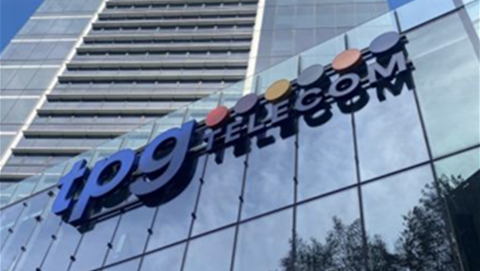NBN Co wants a public, independent metric for how well its services match up to the 5G ‘fixed wireless’ services that are "suggested" to be direct substitutes for an NBN fixed-line connection.
The network operator wants to see the Australian Competition and Consumer Commission’s (ACCC’s) ‘Measuring Broadband Australia’ (MBA) program expanded to monitor rival 5G and fixed-line services, such as TPG’s fibre-to-the-basement (FTTB) network or Opticomm’s fibre network.
The numbers could give NBN Co ammunition to ward off threats of competition, at a time when the company is refinancing and preparations have begun for a possible future sale.
MBA collects internet speed data from thousands of volunteers and publishes it in quarterly reports; some top-performing retail service providers (RSPs) use the results to market their services.
At present, MBA measures NBN and DSL services as a point of comparison, presumably to show the step-change that the NBN has brought.
For the future, however, NBN Co sees the report as a way to put the claims of any rivals it has to the test.
These could be historical rivals like TPG, whose FTTB network led to an overbuilding race in metro areas; Opticomm, which is a key alternative to NBN Co in new housing estates; and 5G mobile operators, whose ‘fixed wireless’ services are sold with NBN-comparable quotas at NBN-comparable speeds and prices.
This, says NBN Co, is reason enough for a new point of comparison in the MBA reports: NBN Co versus the rest.
At the same time, NBN Co is concerned that any 5G services to be monitored needs to be a representative sample.
“NBN Co is strongly of the view that wireless home broadband services be included in the [ACCC] reporting,” the company said in a submission [pdf].
“Public comments from major mobile network operators, some of which have already launched 5G fixed wireless services, suggest that 5G mobile and fixed wireless broadband are direct substitutes for NBN fixed line services.
“If the ACCC were to extend the MBA Program reporting to these networks it must ensure that there is a large enough sample size of users for the results to be meaningful, as well as ensuring that these users are not biased through a service qualification process.”
NBN Co also makes a pair of mentions of TPG’s FTTB network as another one it would like to see subjected to the MBA tests.
“NBN Co is not the only network serving many areas including many multi-dwelling units in metropolitan areas,” it said in a veiled TPG reference.
“Furthermore, in some geographic areas, most notably some new developments, customers are only served by a single non-NBN network,” NBN Co added, a likely OptiComm reference.
NBN Co makes clear that these networks - instead of ADSL - should become the point of comparison used by the ACCC.
“Given that the build and migration phase of the NBN is largely complete, NBN Co considers that there is likely to be no significant benefit from including ADSL services in the [MBA] program going forward,” it said.
“We think that non-NBN networks that are not being disconnected as part of the NBN rollout and migration, or networks that are either newly built or recently extended (such as TPG’s FTTB network) should be used as a comparator network in the future.”
There is some support for Opticomm to be included in the MBA, from Aussie Broadband, which sells services over both NBN and OptiComm infrastructure.
“From Aussie Broadband’s perspective, we would support the extension of the program to other networks that are utilised across the industry like OptiComm,” Aussie Broadband said.
“By extending this program to other networks, consumers can evaluate how their service is performing.”
Neither Telstra nor Optus, however, was keen to see 5G fixed wireless services measured by the ACCC program.
“Optus strongly disagrees with any extension of the MBA program beyond the current NBN fixed-line footprint,” it said.
“Of most concern, the MBA program would not have any congestion management over its use and would itself likely drive peak congestion [on the Optus network]
“Further,, due to the natural variation in environmental factors over wireless networks, a testing regime would need to have a materially greater number of customers than under the fixed network.
“It cannot be assumed that the ACCC would find sufficient customers to produce a reliable measure of speed.”
Optus also argued that its 5G network did not have a uniform national design, which would be hard to independently measure, and that independent testing of 5G speeds was “an example of a regulatory proposal looking for a problem.”
Telstra has broader issues with the MBA program itself, but on the issue of 5G inclusion, it believed the 5G space was simply too new to find a representative sample.
“It is too early in the 5G [fixed wireless] product lifecycle to commence meaningful RSP comparisons,” Telstra said.
“The current sample size is not sufficient to extract enough useful and reliable data.”
Telstra maintained that public speed test results, such as Ookla, are more readily relied on by consumers, and therefore that the ACCC did not need to replicate this work.
The Department of Infrastructure, Transport, Regional Development and Communications will consider what action to take next.





.png&h=140&w=231&c=1&s=0)




















